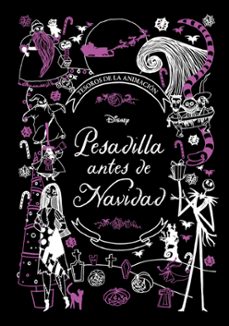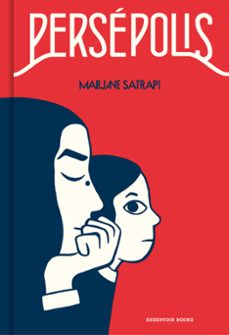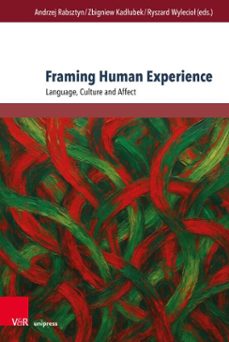Imprescindibles
Ficción
No Ficción
Ciencias y tecnología Biología Ciencias Ciencias naturales Divulgación científica Informática Ingeniería Matemáticas Medicina Salud y dietas Filología Biblioteconomía Estudios filológicos Estudios lingüísticos Estudios literarios Historia y crítica de la Literatura
Humanidades Autoayuda y espiritualidad Ciencias humanas Derecho Economía y Empresa Psicología y Pedagogía Filosofía Sociología Historia Arqueología Biografías Historia de España Historia Universal Historia por países
Infantil
Juvenil
#Jóvenes lectores Narrativa juvenil Clásicos adaptados Libros Wattpad Libros Booktok Libros de influencers Libros de Youtubers Libros Spicy Juveniles Libros LGTBIQ+ Temas sociales Libros ciencia ficción Libros de acción y aventura Cómic y manga juvenil Cómic juvenil Manga Shonen Manga Shojo Autores destacados Jennifer L. Armentrout Eloy Moreno Nerea Llanes Hannah Nicole Maehrer
Libros de fantasía Cozy Fantasy Dark academia Hadas y Fae Romantasy Royal Fantasy Urban Fantasy Vampiros y hombres lobo Otros Misterio y terror Cozy mistery Policiaca Spooky Terror Thriller y suspense Otros
Libros románticos y de amor Dark Romance Clean Romance Cowboy Romance Mafia y amor Romance dramatico Romcom libros Sport Romance Otros Clichés Enemies to Lovers Friends to Lovers Hermanastros Slow Burn Fake Dating Triángulo amoroso
Cómic y manga
Novela gráfica Novela gráfica americana Novela gráfica europea Novela gráfica de otros países Personajes, series y sagas Series y sagas Star Wars Superhéroes Cómics DC Cómics Marvel Cómics otros superhéroes Cómics Valiant
eBooks
Literatura Contemporánea Narrativa fantástica Novela de ciencia ficción Novela de terror Novela histórica Novela negra Novela romántica y erótica Juvenil Más de 13 años Más de 15 años Infantil eBooks infantiles
Humanidades Autoayuda y espiritualidad Ciencias humanas Economía y Empresa Psicología y Pedagogía Filosofía Historia Historia de España Historia Universal Arte Cine Música Historia del arte
Ciencia y tecnología Ciencias naturales Divulgación científica Medicina Salud y dietas Filología Estudios lingüísticos Estudios literarios Historia y crítica de la Literatura Estilo de vida Cocina Guías de viaje Ocio y deportes
Preventa de eBooks de Estudios lingüísticos
Categorias
Filtros
Del 1 al 4 de 4
PÉREZ HERNÁNDEZ, LORENA
Plataforma 9791387813802
El tercer volumen de la colección 20 razones se centra en la lingüística. Lorena Pérez Hernández nos guía por un recorrido sorprendente y lleno de humor a través de veinte capítulos que conectan nues
Ver más
eBook
ATENCIO, JAVIEL
Universo de Letras 9791387716967
La Palabra está cerca, su poder y esperanza te habitan.Durante casi toda la existencia humana documentada, el hombre ha usado la palabra con la intención de preservar y desarrollar la vida. La conveniencia y la cooperacion han delineado la forma del lenguaje a traves del tiempo, pero en algun momento de la historia, el uso convencional de la palabra se transformo para darle belleza a la existencia de los pueblos. Por lo que podemos concluir que la palabra ha dado forma a lo que somos; pero llegamos a un momento historico en el que podemos trascender el uso de la misma, y para ello es necesario expandir la percepcion de los grafismos, el efecto sensitivo en las conexiones, y el mundo que podemos crear a partir del manejo de la abstraccion contenida en la palabra. Cambia la vision y cambia el planeta y su estructura molecular ante las mismas formas de vivir como humanos. El objetivo de estas letras es descubrir una nueva manera de percibir la palabra, de la que nadie ha hablado, y de la que creo que hara de nosotros un nuevo mundo. Este descubrimiento o artificio cognitivo es presentado usando multiples piruetas linguisticas para enamorar al lector. Poemas, cuentos, metaforas, divulgaciones cientificas, descripciones, reflexiones, elucubraciones, impregnan esta obra de interesantes propuestas para la transformacion personal y social.
Ver más
eBook
V&R Unipress 9783847019336
"Framing Human Experience: Language, Culture, and Affect" offers an interdisciplinary exploration into the multifaceted ways human realities are constructed, perceived, and navigated through linguistic structures, cultural frameworks, and affective responses. This volume brings together scholars from diverse fields to investigate how experiences, ranging from the intimate sense of home to societal phenomena like violence and disinformation, are articulated and understood across various contexts. By integrating these diverse analytical perspectives and case studies spanning multiple languages and historical periods, the volume illuminates the intricate, dynamic interplay between our linguistic tools, cultural inheritances, and affective lives. It offers valuable insights for scholars and students interested in how meaning of human experience is made, contested, and experienced in a complex world.
Ver más
eBook
V&R Unipress 9783847019350
This volume is a response to the criticism that scholars create "bricks" of knowledge without integrating them into a coherent whole. The twelve bricks that make up this volume form a solid edifice of innovative views on literature and language based on the idea of engagement. The first part focuses on literature and its ability to engage and express the engagement of the individual. The reader will find here a reflection on the relationship between man and God, the impossibility of cognition through symbols, and the multitude of "thoughts" expressed through language. In the second part, the key idea assumes a different dimension, as the analyses engage in defining socially relevant concepts of justice, rationality, power and freedom, and cases of social life where the involvement of creators of culture is indispensable. The third part illustrates the engagement of linguistics in the description of the reality constantly created by language. These varied perspectives allow for the diversity and multidimensionality of engagement to be revealed.
Ver más
eBook
Del 1 al 4 de 4
























